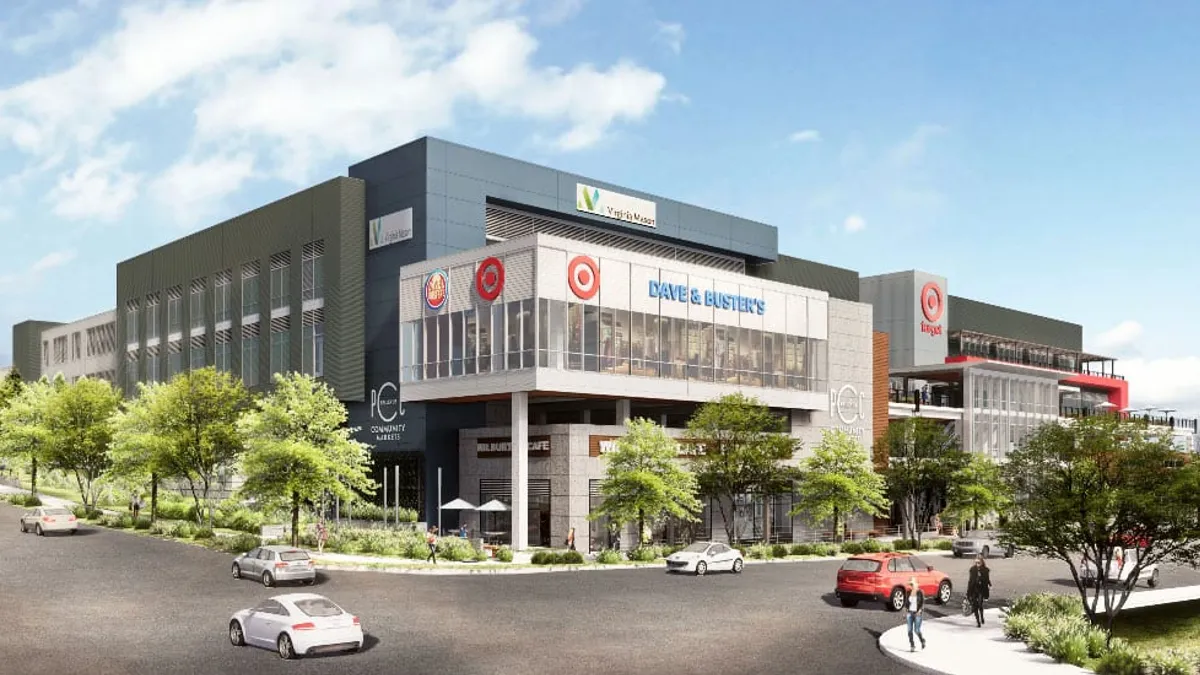Dive Brief:
- Seattle-based PCC Community Markets is pushing back on the city’s latest pandemic-related hazard pay plan, arguing that it would have a detrimental effect on independent grocers like PCC. The temporary law, which is awaiting the mayor's signature and will go into effect on Wednesday, requires grocery stores to give workers an additional $4 per hour.
- In a letter to Mayor Jenny Durkan, PCC CEO Suzy Monford said the city should focus on ensuring that all grocery workers have access to COVID-19 vaccines quickly and urged Durkan to either not sign the temporary law or take steps to exempt smaller, local chains from its requirements.
- PCC is taking issue with Seattle’s planned hazard pay increase as a growing number of municipalities, urged on by labor officials, move ahead with efforts to require grocers to provide workers with more generous compensation.
Dive Insight:
In asking Seattle’s mayor to exclude PCC from the hazard pay ordinance, Monford pointed out that the costs the 15-store chain has already borne because of the pandemic have already “cut our margins to the bone” and said independent food retailers are not as well-equipped financially to absorb additional expenses.
Seattle’s proposed hazard pay law, which applies to grocers with more than 500 total employees that operate in the city, would not affect convenience stores or “food marts primarily selling a limited line of goods.”
PCC spent $3 million in 2020 to cover pandemic-related costs such as safety measures for stores and the extra pay it gave at the start of the public health crisis — a figure that was more than twice the cooperative’s $1.7 million in net income for the previous year, Monford wrote.
In addition, a growing percentage of PCC's shoppers use third-party online delivery services that take a chunk of each sale they handle, Monford told the mayor. Those customers currently account for about 4% of PCC’s transactions, according to the cooperative, which specializes in locally sourced natural foods.
“Unlike large corporate grocers who saw a large sustained uptick in sales nationwide, we have not had a sustained increase in sales and do not have a national footprint to rely on to offset these costs nor the cost of doing business in Seattle,” Monford, who became CEO of PCC in December after running Kroger’s Quality Food Centers division in Washington and Oregon, said in the letter.
Monford also contended that grocers should receive credit for the role they have played in helping to keep the level of COVID-19 cases down in the state of Washington. She said 36 of PCC’s 1,710 staff members have contracted the disease since February and that none of those people were infected at work.
The decision by Seattle lawmakers to require grocers to provide workers with hazard pay puts it in the company of several other cities that have pressed ahead with similar measures, including Los Angeles, Long Beach, San Francisco and Berkeley, California.
Kroger has announced that it will close two stores in Long Beach, where lawmakers are poised to give final approval to a $4-per-hour hazard pay ordinance Tuesday, because of the looming extra pay requirement, the Los Angeles Times reported Monday.
Opposition to hazard pay by grocers runs counter to calls by President Joe Biden and the United Food and Commercial Workers International Union (UFCW) for retailers to retroactively restore the extra compensation many chains voluntarily distributed shortly after the pandemic began but then canceled.
“The actions taken to protect frontline essential workers in California and Seattle are just the beginning. For the sake of public and worker safety, we are urging Congress and all elected leaders to take action and join this critical effort to compensate workers who continue to face these daily risks,” UFCW International President Marc Perrone said in a statement.













